Sorted by date Results 1 - 17 of 17
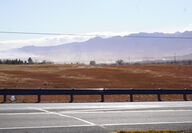
We have watched the scenes from Colorado Springs (Waldo Canyon Fire in June of 2012) and California where wildfires reached into our towns and cities destroying hundreds of homes in a matter of hours. Most Front Range inhabitants would never have thought that it would happen so close to home. Our idea that wildfires are confined to forested areas and during summer has been challenged and is no longer the norm. We need to be prepared and able to recover should the unthinkable happen. Our...
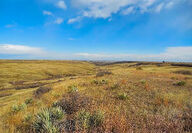
According to the National Oceanic and Atmospheric Administration (NOAA), the latest first measurable snowfall (0.5") in Boulder was November 26, 1910 (although the records prior to 1948 are suspect). The latest first snowfall since 1948 (considered to be more accurate) is November 17, 2016. Either way we are past both dates. On average, Boulder receives 18 inches of precipitation per year. While Boulder has received 20.2" of precipitation thanks to a very wet 2021 spring, since August, Boulder...
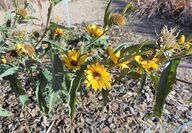
Birds are the only wildlife that Colorado Parks and Wildlife regulations allow homeowners to feed in the winter. It's not a good idea to feed birds year-round as you train them to rely on humans (you) for their food instead of foraging on their own, plus feeding can be an easy way for diseases to spread. If you aren't able to continue feeding them or you are on vacation for any length of time, they may struggle to find food. If there aren't any plants nearby, they must fly around until they can...
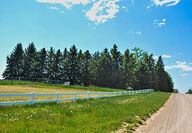
As we head into the windier and hopefully snowier time of year, now is the time to make plans to plant a windbreak on your small acreage next spring. Windbreaks make your yard less windy, prevent snow drifts across the driveway and in corrals, prevent soil erosion, provide protection and shade for your livestock and provide wildlife habitat. In our area, windbreaks should be planted on the north and west sides of a property to block our winter winds. The principle behind windbreaks is the trees...
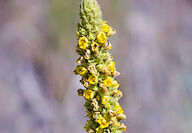
What characteristics make weeds so successful with the ability to annoy us and resist our attempts to eliminate them from our properties? Weeds are non-native plants that have been brought here either intentionally as a landscape or food plant, or unintentionally as a contaminant in crop seed, in the gut system of animals, or in some other material. Because weeds are not native, they do not have any natural controls to keep them in check and they become invasive. Scientists have worked to find...
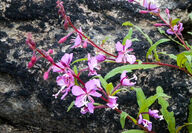
Wildfires are devastating to landscapes. However devastating we think wildfires are, some plants have adapted to wildfires and rely on them. In the past, the plains and foothills areas experienced low to medium intensity fires every 10 to 30 years. These fires served to clean up the duff and dead wood, and killed young tree seedlings that had not developed fire resistance. Due to these low intensity fires, ponderosa tree density in the past was only 20 – 30 trees per acres as opposed to the h...
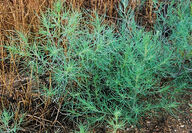
With the recent moisture and the heat of summer, summer annual weeds have sprouted and are growing. Winter annuals have produced seed and are at the end of their life cycle. Winter annuals with seeds should be pulled and disposed of in the trash. Weeds with seeds should not be composted in a home compost system as the seeds will likely not be killed in the home composting process. Common summer annual weeds include redroot pigweed, lambsquarter, spotted spurge, prostrate purslane, Russian...

When we see a plant and it is prickly, we automatically assume it is a thistle and therefore it is a bad plant. The Oxford Dictionary defines a thistle as "a widely distributed herbaceous plant of the daisy family, which typically has a prickly stem and leaves and rounded heads of purple flowers." There are 20 thistles native to Colorado and they are desirable plants? Thistles are in the Asteraceae, sunflower (daisy) family. So, resist the urge to pull every prickly plant you see on your...
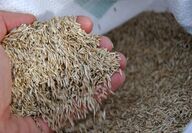
We are told to read labels and instructions on just about everything we purchase,whether it is a new cell phone, food or pesticide. This is also the case with seed. If you purchase your seed from a reputable dealer, then you can be assured that the information on the package and the seed in the package meets certain requirements. You may have noticed the information on the seed bag, but didn't know what it meant. State law, federal law and either Association of Official Seed Analysts (AOSA) or...

You'll know when they're back by their drumming on your roof vents or the side of your house (I spotted the first one this year on Feb. 22 pecking a telephone pole). You may love them or hate them when they cause damage to your house. Northern flickers, also known as woodpeckers, are migratory birds that winter in the southern United States and arrive back here around March. What can you do about them? As a migratory bird, they are protected under the Migratory Bird Treaty Act of 1918. The Act...
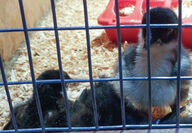
You decided that you want to keep a few chickens so that your family has fresh eggs. You have all the equipment to house and feed them, but how do you keep them healthy? The first step which should be done prior to purchasing your chicks is to identify a local veterinarian who is familiar with and can treat chicken health issues. While it is unlikely that you'll need their help, it is good to have one identified as not all veterinarians treat chickens. The next step is to keep their feeder,...
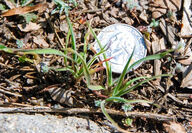
While this may not seem to be the best time of year for weed management, it is a good time to start dealing with winter annual and biennial weeds and planning your strategy for the 2021 growing season. Winter annual weeds can germinate in the late summer, fall or winter, over winter and start actively growing again in the spring. Winter annual weeds finish growing and produce seed by early summer. Biennial weeds start growing in the summer or fall, over winter and produce seeds the following...
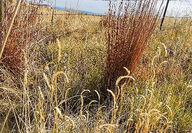
Native grasses can be used in a landscape either as specimen plants, or for a bluegrass lawn alternative or to create a native prairie landscape. While a native grass lawn or prairie landscape is not for everyone, they work well on larger lot sizes and acreages. Native grasses that are normally used for alternative lawns are blue grama, buffalograss and fescues. They have lower growth habits which makes them desirable for those who don't like to mow often. Other grasses that can be used to...
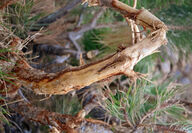
In previous articles, I have written about the damage rodents and small mammals cause to your landscape plants, but larger mammals such as deer, elk and bobcats can damage landscape plants too. Deer and moose are browsers, meaning they predominantly eat forbs (broadleaf plants) and shrubs and trees but also graze grasses. Elk are mainly grazers but browse forbs and shrubs when grass is lacking or unavailable. Fruit trees such as apples are a favorite browse. These mammals can also use your...
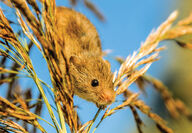
As the weather cools and bears are headed to hibernation, mice may be seeking the warmth of your home and voles may be setting up their homes in your landscaping. How do you keep these unwanted visitors out of your house and protect your landscape plants? Start inside the house by storing food in rodent proof containers. Store cereal, rice, flour, noodles, chips and other foods in either metal or heavy plastic containers with tight lids. Immediately clean up any food spills. Keep the area where...
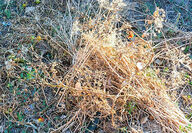
Special to the Courier Trees are beginning to lose their leaves, your garden plants are done and if you don't have access to commercial composting pickup, you may want to try composting them in your yard. Composting is not as difficult or as time consuming as you think. Composting provides organic material to improve soil and reduce wastes that reach landfills by 20- to 30% or more. You do not need a fancy compost bin unless your homeowner's association has a covenant requiring one. A simple...
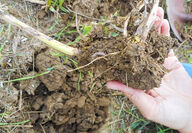
One of the pleasures of spring is digging in the soil and that earthy smell, but how much do we really know about the soil beneath our feet? According to Leonardo DaVinci, "We know more about the movement of celestial bodies than about the soil underfoot." Although we've learned a lot since Leonardo's time, we still have a lot more to learn. At the core of any property, and critical for plant growth, is soil. Soils store and release nutrients and water to plants for growth, and secure plant...